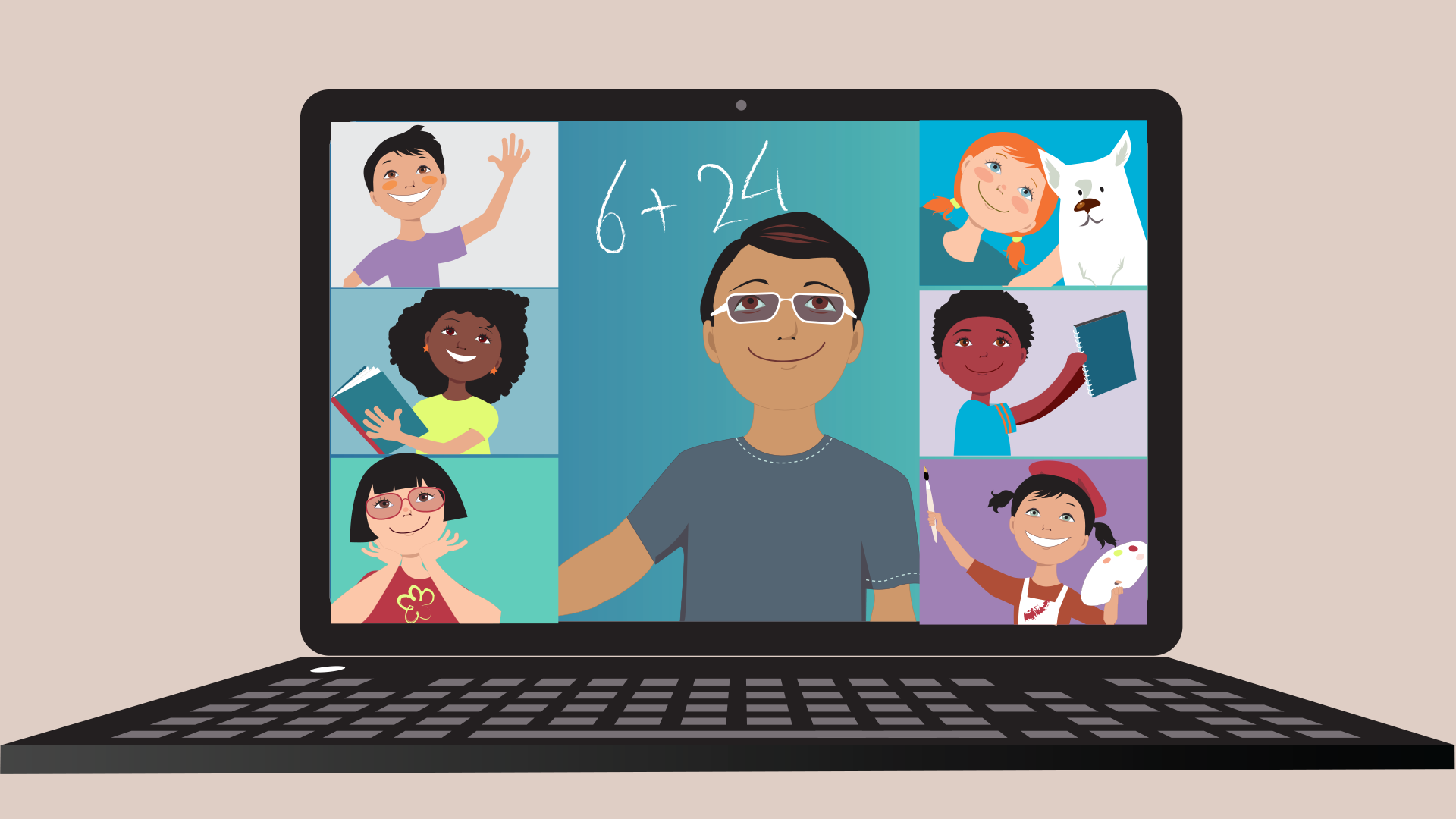
During this pandemic, supporting your child’s mental and emotional health cannot be emphasized enough. Distance-learning is a convenient way to keep kids safe and still engaged. However, it is crucial to recognize both the positive and negative effects this approach will have on your child’s mental health.
Lower Attention Span
For years, research has linked screen time to lower attention spans, hyperactivity, and behavioral problems. Young children are especially affected by long hours spent on technology such as television, social media, and video games.
A 2019 study examining the effects of screen time on young children showed that 4 to 6 year-olds who spent more time on screen-based activities displayed lower emotional understanding. Another research study examining the relationship between screen time and behavioral issues also showed that children who participated in more screen time activities showed more problem behaviors. When a child cannot self-regulate their behaviors or emotions, they have a more difficult time focusing on schoolwork.
Students can also find it more challenging to concentrate on their studies without structure. School is physically designed to be a place of learning, but at home, there are constant distractions. It can be tough creating a quiet and calm space to learn. Parents can help by diminishing as many distractions as possible with your child and setting aside space and time for scheduled, focused learning.
Stress & Anxiety
Stress and anxiety in children often come from feeling a loss of control of their situation both at home and school. It can also come from fear of the virus, worry about missing in-person extracurriculars, and stress from any household or other hardships. Practicing mindfulness activities with them and reminding them of what they can and cannot control in this situation can help lessen a child’s anxiety, especially when faced with the challenges of distance-learning.
Another great way to help children manage stress is by encouraging them to get enough sleep at night. Being exposed to light in the evenings, especially blue light from technology, can alter circadian rhythms and cause trouble falling asleep. It is recommended for children and adults to do something relaxing at least an hour before bed away from the electronics to get plenty of rest.
Depression from Isolation
Social play is essential for children to build foundational social skills and to support their emotional and physical development. For a K-5 student, being separated from their friends and school community can feel isolating and put them at risk for depression. This lack of social interaction and feeling of loneliness may lead to suicide ideations, so it is crucial to check in on your child if they seem to be struggling with this. Scheduling regular video calls with friends or encouraging virtual play can help children still feel like they are part of a community.
Sedentary behavior, which is sitting in one place for a long time, has also been associated with a risk of depression (Long, Yi, & Dongfeng, 2015). One way to combat this is to move around or use flexible seating while doing online work. Some schools may offer students ways to connect with their peers or have mindfulness resources geared towards grades K-5. Taking walks and playing outside also has a huge positive impact not only on a child’s physical health but on their mental health as well.
Lifelong Learning Perspective
Distance-learning is an excellent opportunity for students to truly practice ‘lifelong learning,’ a term school districts love to use. However, it is challenging for educators to implement this perspective outside of the classroom setting. Since school and home now coexist in the same space, children can learn independently outside of an external structure and bring learning home. Real-world and classroom subjects are able to come together and give your child a new perspective on what learning looks like.
This perspective benefits a child’s mental health in the long run because it fosters a growth-mindset approach to learning in any situation. Encourage your child to seek help when faced with difficulties, or to utilize problem-solving skills in encountering any troubles with their schoolwork or conflicts at home. Nurturing lifelong learning and a growth mindset is a continuous process, and distance learning can help shape that perspective in your student.
Independence & Ownership
While school provides a strict structure with fewer distractions, learning from home allows children to become more autonomous and take ownership of their education. When students feel in control of their learning, they can become more self-motivated. Younger students will inevitably have more trouble self-disciplining and working independently than older students, but this practice will significantly benefit their mental health and attitude as independent learners in the long run.
Ultimately, stay aware of your child’s mental health as they learn from home. Express any concerns you may have with school personnel, such as a school counselor, or a mental health professional.

Emily currently lives in Orange County, California after spending four years in Illinois and half a year teaching in Florence, Italy. She holds a B.A. in English Literature from Knox College and an M.A. in Counseling from the University of San Diego and has taught English to native speakers and ESL students for over three years. When she’s not working as a School Counselor or writing, she enjoys traveling the world, playing instruments, and blogging about Millennial experiences at Long Live the Twenties.
